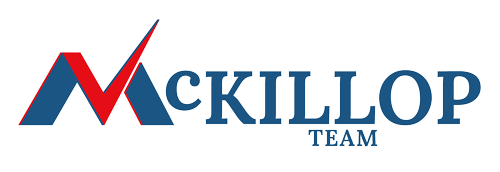Deposit and down payment–two words that are commonly used and often interchanged. While they’re both upfront costs in the home buying process, the two terms are entirely different.
A deposit is money you attach to an offer to show a home seller that you’re interested in buying their property. A down payment is a percentage of the home price you pay upfront to close the purchase of a house.
The two payments sound similar but vary widely in a few distinct ways. Read on to find out more.
Deposit
A deposit is the money you present to a home seller during the offer stage to show your commitment to buying their property. It gives the seller confidence in your willingness and financial capacity to buy the property.
Most times, you cannot retract a deposit; you just add it to the down payment to purchase the house.
Down Payment
A down payment is a percentage of the home price you pay to seal the deal after the seller accepts your offer to buy a house. It is paid at closing, and the balance is then paid through your mortgage.
The size of a down payment varies but usually starts at 5%. A down payment of less than 20% normally requires a mortgage loan insurance plan. This protects mortgage lenders from the risk of a home buyer defaulting on their mortgage payments.
Key Differences Between a Deposit and a Down Payment on a House
The major differences between a home-buying deposit and a down payment are in the amount and timing of payment.
| Deposit | Down Payment |
| ● No standard required amount.● Paid along with the offer | ● Typically ranges from 5% to 20% of the home’s purchase price.● Paid on the closing day of the home purchase |
Amount of Down Payment
The deposit you pay to your seller is not set in stone. Your real estate agent may come to an agreement with the seller’s representative to establish a fair deposit amount and due date.
Down payments are a little different. The minimum home down payment in Canada ranges between 5% to 20%, depending on the home’s purchase price.
| Home Purchase Price | Minimum Down Payment |
| Below $500,000 | 5% |
| $500,000 – $999,999 | 5% on the first $500,000 and 10% on any amount above $500,000 |
| Above $1,000,000 | 20% |
On the lender’s side, the home purchase price isn’t the only determinant of the amount of down payment you pay. Other things that affect the minimum required down payment include:
- Your credit history
- Whether you’re self-employed
As mentioned, your mortgage lender will also charge you a mortgage insurance premium if your down payment is below 20%. The amount of insurance premium you pay varies from 0.6% to 4.5% of your total mortgage amount. This is your lender’s way of covering their bases in case you fail to pay your mortgage in the future.
Keep in mind that your lender will also appraise the home value before they decide how much they want to lend you to buy the house.
The three private companies in Canada that provide mortgage insurance are the Canadian Mortgage and Housing Corporation (CMHC), Sagen, and Canada Guaranty. CMHC is government-backed and therefore remains a favourite among the three.
Timing of Payment
A deposit typically comes before a down payment. When you see a house you like, you and your real estate agent will write an offer to purchase the property and send the offer to the seller along with a deposit. You can make the deposit via money order, certified cheque, or bank draft.
But the seller doesn’t receive the deposit immediately. If the seller accepts your offer, the deposit is held in trust by the seller’s brokerage until the house sale is complete. Think of the trust as an escrow account where funds are held until they’re safe to release to their rightful owners.
After the sale of the house is completed, the deposit will be added to the down payment amount. This is a legal requirement of the Real Estate and Business Brokers Act, 2002 (REBBA).
However, deposits often can’t be recovered if the house sale doesn’t close. For example, if you change your mind about the house, the seller isn’t legally required to return your deposit unless the offer includes specific clauses about this. In such cases, you would sign a Termination and Mutual Release form and get your deposit back.
A down payment happens on the day you close the deal on buying the house. On this day, the funds are released from the trust account into the hands of the seller.

